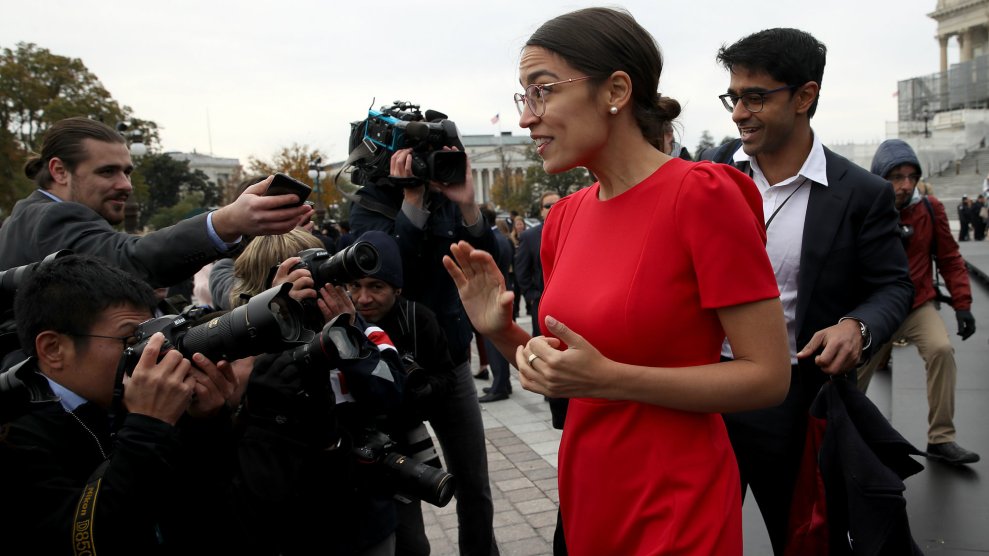
Alain Pitton/NurPhoto via Getty Images
This story was originally published by HuffPost and appears here as part of the Climate Desk collaboration.
French President Emmanuel Macron reversed course on his controversial gas tax on Tuesday, announcing a six-month suspension in the face of weeks of fiery protests, where nearly 300,000 motorists donned the yellow vests French law requires drivers keep in their cars and blocked highway traffic.
The decision delighted the Wall Street Journal editorial board, who this week feted the protests as a “global carbon tax revolt” against “green piety.”
“Nothing reveals the disconnect between ordinary voters and an aloof political class more than carbon taxation,” the board wrote.
It was an unsurprising take from authors whose regard for monocled 19th-century industrialists as civilization’s ethical and political peak renders them ideologically incompatible with the scientific realities of human-caused climate change and what it’ll take to address it.
Their analysis, while incomplete, stumbles backward into the most vital climate policy debate happening outside the confines of the Republican Party’s outright science denialism. Since the 1970s, neoliberalism—the philosophy that preaches prosperity through privatization—has dominated both major political parties in the United States, and been imposed throughout the world via hegemonic Washington-based financial institutions. Yet averting cataclysmic global warming, scientists say, requires an economic transformation that such free-market absolutism appears unable to deliver.
Rather, scientists and experts point to the kind of large-scale economic mobilization governments typically reserved for waging war as the only policy capable of scaling clean energy infrastructure with the speed researchers say is needed. This would keep temperatures within 2.3 degrees Fahrenheit above pre-industrial levels and protect food systems, freshwater supplies and coastal cities from catastrophe.
That framework undergirds the so-called Green New Deal, the proposal progressives like Rep.-elect Alexandria Ocasio-Cortez are pushing to scale down emissions over the next 12 years, the deadline by which United Nations scientists say world governments must halve emissions to keep warming within the 2.3-degree limit. Such a plan offers a chance to not only end the global economy’s dependence on fossil fuels, but it also provides the mechanisms to reduce growing income inequality and provide good-paying jobs to millions who struggle to make ends meet even as they work multiple low-wage jobs.
Some proposals, including the proposition Washington voters rejected last month, suggest taxing carbon dioxide and using the revenues to help pay for that kind of costly infrastructure build up. But pioneering work by economists such as Stony Brook University’s Stephanie Kelton finds that the government can simply print more money without raising the additional funds through direct taxation or borrowing.

















